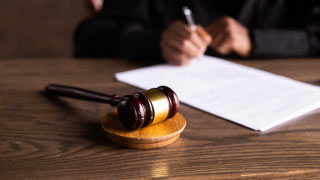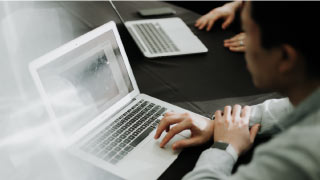Improving The Deposition Experience Through Legal Videoconferencing
August 14, 2025
Court Reporting
How Legal Videoconferencing Improves the Deposition Experience
According to Forbes Magazine, the legal industry will be dramatically impacted by mobile technology, which will enable attorneys to litigate remotely. Indeed, technology is impacting all aspects of the legal profession, both reducing costs and improving the delivery of services.
Similarly, at the Corporate Legal Operations Institute (CLOC) Summit in April 2018, the consensus among corporate counsel was that law firms need to embrace technology to accelerate the legal process, improve efficiency, and enhance the experience of participants.
As clients raise expectations for quality and efficiency, law firms are embracing technology to modernize their processes and workflow. Legal service providers and developers need solutions like advanced legal videoconferencing technology to help their clients better address these needs.
Remote video depositions are now one of the most significant examples of this digital shift. With today’s secure legal videoconferencing and remote deposition technology, attorneys, witnesses, and court reporters can collaborate in real time without sacrificing professionalism or accuracy. These innovations make the deposition process more cost effective, accessible, and efficient for law firms and legal professionals nationwide.
The Evolution of Remote Depositions
Attorneys have conducted telephonic depositions for more than a half century. For the most part, the only way to take remote depositions was over the phone. In the past, videoconferencing was only used in extreme circumstances because of its high cost and inconvenience.
Over the past decade, remote proceedings have become integral to litigation. Early video tools have given way to specialized deposition platforms built for legal security and compliance. Lexitas’ technology-forward approach combines advanced legal videoconferencing systems with experienced court reporters, giving law firms reliable, professional solutions for every remote matter.
As bandwidth improved and legal-grade platforms matured, remote depositions shifted from costly exceptions to a reliable, everyday option for law firms, clients, expert witnesses, and deponents.
For help selecting the right professional, see our guide on how to find a court reporter.
Improved Video and Audio Quality
Modern remote deposition technology offers high-quality audio and video designed to perform seamlessly across a range of bandwidths. Users with stronger internet connections experience enhanced image clarity, while even low-bandwidth participants benefit from consistent, reliable sound. Lexitas’ secure legal videoconferencing solutions, such as LegalView, maintain clear audio through intelligent echo cancellation and advanced streaming protocols, ensuring a professional, face-to-face experience for every participant.
For an example of how courts regulate remote appearances, see California Courts Rule 3.1010, which outlines practices for conducting depositions by videoconference.
Modern Remote Deposition Technology in Action
Today’s legal teams rely on more than video calls. They need complete deposition platforms and solutions that streamline every aspect of the process. Lexitas integrates exhibit management, secure exhibit sharing, and encrypted portals to protect sensitive information. Our systems allow screen sharing, real-time annotations, and easy access for hybrid teams working both remotely and in conference rooms.
6 Benefits of Legal Videoconferencing for Attorneys and Clients
Remote video depositions provide measurable advantages for both clients and legal professionals:
- Reduces travel time and scheduling conflicts for multi-location matters
- Enables real-time screen sharing and exhibit management
- Provides high-quality audio and video for clear testimony
- Supports secure participation through encrypted cloud platforms
- Creates a more cost-effective option for law firms and clients
- Enhances accessibility for witnesses in different time zones
A World of Possibilities
Remote deposition technology lets deponents testify from anywhere and enables team members to participate without traveling, while maintaining a professional, face-to-face experience.
Live streams help counsel monitor progress in real time, while recorded video, transcripts, and exhibits are easy to access and share for research, preparation, and case strategy.
For courtroom-ready materials, see our trial support services.
Improving the Deposition Experience
High-quality, reliable, and secure remote deposition technology gives attorneys more flexibility in how and where they work, while reducing costs, accelerating timelines, and producing better work product for settlements and trial. Using a remote deposition platform, participants can instantly create a fully-interactive or one-way viewing experience. They have the flexibility to connect via computer, mobile device, videoconferencing system, or even a traditional telephone. After the deposition, the video, transcripts, and exhibits are available online. These assets can be used at trial, in settlement, or in client meetings. Explore our court reporting services for complete deposition support.
“Attorneys are enhancing their business and providing higher levels of service to their clients with remote depositions. In learning from the experience of other lawyers, they discover that a tool designed specifically for the industry suits them better than other options.”
LegalView enhances the client and attorney experience at thousands of depositions around the world. While some actively participated in the depositions, and others authorized professionals merely observed the proceedings, all enjoyed the flexibility, convenience, and quality experience provided by current legal videoconferencing technology. Schedule your next remote video deposition with Lexitas.
Contact us to experience secure, high-quality legal videoconferencing supported by expert court reporters.
Related Resources

Articles
Court Reporting
What You Should Expect from Your Court Reporting Firm
Here are five things to expect from your court reporting firm to have your case go smoothly.
Read More
Articles
Court Reporting
Real Time Deposition Preparation Tips & How Realtime Depositions Work
Realtime court reporting is the live translation of a reporter’s stenotype writing into readable text.
Read More
Articles
Remote Proceedings
Remote Video Depositions and Beyond
Remote video depositions provide a host of benefits including: reduced costs, improved outcomes and a better work/life balance.
Read More